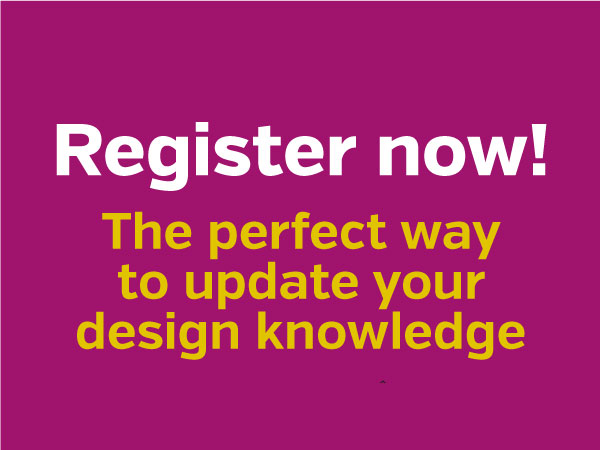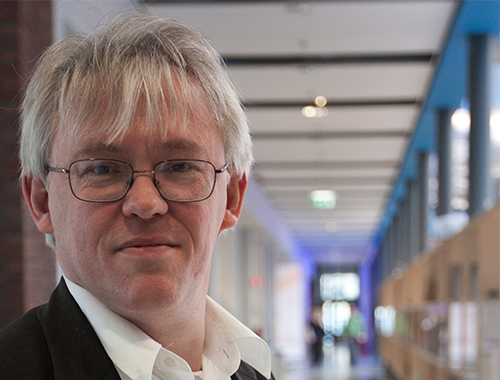Contextmapping
IDE Design Master Class for Professionals
Involving people in design processes as experts of their experience
Contextmapping is just what it says it is: making a map of the context (of use). Introduced in 2003, the term refers to an approach to exploratory and participatory design research which makes use of the expertise of the user and the skills of the designer.
Contextmapping offers a procedure for conducting contextual research with users, where tacit knowledge is gained about the context of product use. It was developed specifically to inform and inspire design teams, so that users and other stakeholders can actively participate in the design process to ensure a good fit between the design and the use of a product or service, the needs of the user, and the core competences of the provider. Participants learn the theory of contextmapping in a series of lectures and practical exercises.
Curriculum
This Master Class addresses the success and failure factors in new product development (NPD) with a special focus on the role of marketing. The interactive blend of theory and practice introduces participants to NPD topics including product innovation, new product failure scenarios, best practices for launching new products, and provides hands-on experience on how to build a product and brand portfolio that is balanced and strategically aligned. The Master Class uses case studies drawn from recent innovative product introductions.
Learning Objectives
During this master class you will:
- understand the techniques of involving users and other stakeholders in design, the role of contextual research in innovation;
- see when contextmapping techniques are useful for gathering insights, and communicating these insights within design teams;
- develop a feeling for the psychological processes of reflection and expression of user experience;
- learn how to implement the technique in your own company.
Content
- Forces in innovation: development of user-centred design from 1970s to present (product-centred, user-centred, interaction design, experience design, contextual design, empathic design, service design); codesign and co-creation;
- the value of user insights for innovation; the communication needs of designers regarding user experience insights; the contextmapping process, its underlying principles (creativity, expressivity); exercise to experience these principles (as user); the information needs of design teams;
- steps in the context mapping process: preparation, gathering, analysis, communication, conceptualization;
- the importance of planning; industrial case examples; exercise in field research (interviewing with a generative toolkit), carrying user insights through to conceptualization; practical guidelines for conducting studies.
Speaker
Programme
| 9:00 | Registration and Welcome drinks |
| 9:30 | Introduction and overview Presentation of the aim and structure of the course, expectations and backgrounds of the participants. |
| 10:00 | Lecture - The basics of contextmapping Presentation of industrial context, developments in user-centered and participatory design. |
| 11:00 | Break |
| 11:30 | Workshop 1 - Generative sessions Group exercise with generative toolkit. Discussion of generative process and facilitation. |
| 13:00 | Lunch |
| 14:00 | Workshop 2 - Creating a toolkit Intruction on principles of creating evocative toolkits; managing creativity and ambiguity. Workshop on creating a toolkit. |
| 15:30 | Break |
| 16:00 | Field exercise Applying the toolkits from workshop 2 in field interviews, documenting feedback for analysis. |
| 17:30 | End of the first day |
| 9:30 | Workshop 3 - Analysis and idea generation Performing quick qualitative analysis; documenting insights for use in the design process, on the basis of outcomes of day 1. |
| 11:00 | Break |
| 11:30 | Presentations - Industry experiences Review of a number of cases from industrial practice, focusing on barriers and enables in the organisation (about small and large organisations in business and government) |
| 13:00 | Lunch at the Porceleyne Fles |
| 14:00 | Planning Review of the process, planning involved, skills needed in-house or hired in. |
| 15:30 | Break |
| 16:00 | And me...? Discussion of cases and questions from participants' own background. |
| 17:00 | Wrap-up |
| 17:30 | End of the second day and closing drinks |
Practical Information
How to prepare?
One week before the course, you will receive a homework assignment to get prepared for the master class. Furthermore, it can be useful if you think of a case from your design practice to bring to the course.
Books and materials
At the end of the course, you will also receive literature on the relevant topic (book and/or reader). Handouts of the IDE Master Class will be provided with space for personal notes. All materials provided are included in the course fee.
After the course
Two months after the course a preset consultation timeslot will be offered to all participants to share experiences and consult the Master.
Costs Master Class
| € 950 | standard |
| € 850 | for members of BNO, KIVI IO, HumanFactorsNL |
| € 750 | for IDE alumni |
Courses are VAT-free
Lunch, drinks, material and book are included
Reduction
| € 100 | for each additional Master Class per organisation in 2024 |
| € 100 | if you register before 01 February |

